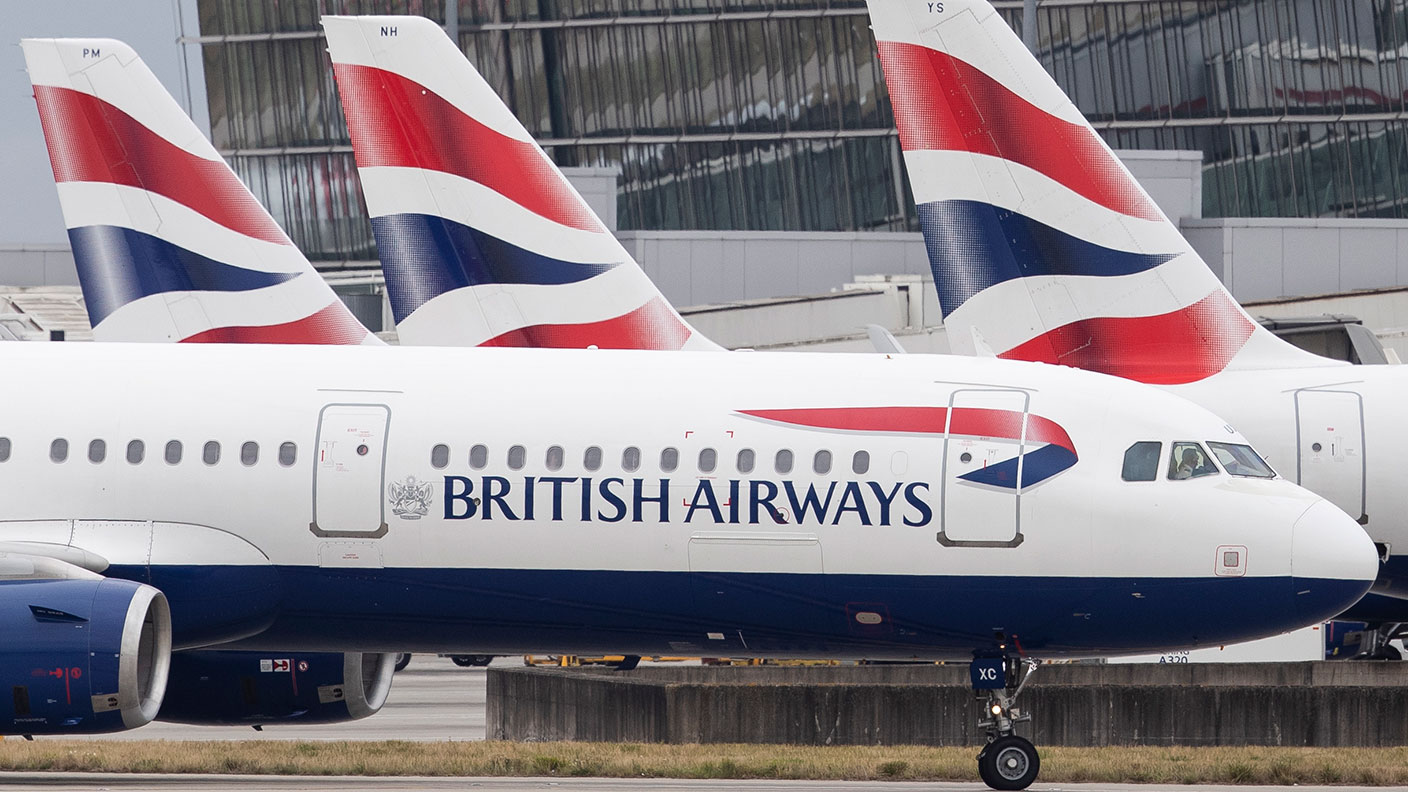IAG shares look shaky despite the travel recovery – one to avoid
IAG, owner of British Airways, looks to be getting back on track, and hopes to turn a profit in the next quarter. But don't think that makes IAG shares a buy, says Rupert Hargreaves. Here's why.


Get the latest financial news, insights and expert analysis from our award-winning MoneyWeek team, to help you understand what really matters when it comes to your finances.
You are now subscribed
Your newsletter sign-up was successful
Want to add more newsletters?

Twice daily
MoneyWeek
Get the latest financial news, insights and expert analysis from our award-winning MoneyWeek team, to help you understand what really matters when it comes to your finances.

Four times a week
Look After My Bills
Sign up to our free money-saving newsletter, filled with the latest news and expert advice to help you find the best tips and deals for managing your bills. Start saving today!
The IAG (LSE: IAG) share price is a bellwether for the global travel industry.
Shares in the airline group, which owns British Airways and Aer Lingus among others, have jumped around over the past two years as investors have tried to second-guess when the travel market will recover from the pandemic.
After more than two years, it looks as if IAG is finally starting to get back on track. It’s aiming to fly at 80% of pre-pandemic capacity this year (assuming demand holds up), according to its latest trading update.
MoneyWeek
Subscribe to MoneyWeek today and get your first six magazine issues absolutely FREE

Sign up to Money Morning
Don't miss the latest investment and personal finances news, market analysis, plus money-saving tips with our free twice-daily newsletter
Don't miss the latest investment and personal finances news, market analysis, plus money-saving tips with our free twice-daily newsletter
What’s more, management reckons the company will turn a profit in the second quarter, a huge step in the right direction. If IAG returns to profit, it should remove any question marks over its ability to continue as a going concern – for the time being at least.
IAG’s North American routes are its cash cows
IAG’s portfolio of airline brands gives it scale, while it also has a strong foothold in the key North Atlantic travel market.
The transatlantic route between London Heathrow and JFK New York is the jewel in IAG’s crown. It is the fourth-most active route in the world, and the most profitable. However, over the past two years, stop-start travel restrictions have hammered demand.
Management plans to ramp up capacity to 100% on the route by the third quarter, indicating that demand is returning faster than in other areas. A “strong” return in business travel is helping power the recovery.
As IAG’s main focus is North America and other long-haul destinations, the war in Ukraine has not affected it directly, although it is reporting significantly higher fuel costs as a result of higher oil prices.
The optimistic outlook implies that IAG is starting to draw a line under two years of losses and uncertainty. But it’s not all good news.
IAG is carrying a heavy debt burden
Capacity issues at Heathrow are forcing management to slow its growth plans. The firm was planning to fly 85% of capacity this year; its target is now 80% – not for lack of demand, but for lack of infrastructure. Instead of increasing capacity as fast as possible, management is now focusing on “enhancing operational resilience”.
And while IAG expects to return to profit in the second quarter, it lost money in the first. It recorded a loss of €800m in the first three months of 2022, slightly better than the €1.1bn recorded for the same period last year.
It also ended the period with interest-bearing debt of €20bn, a huge drag on the balance sheet. The cost of sustaining borrowings totalled €233m in the first quarter alone.
The airline industry has some major structural challenges
IAG’s size and transatlantic routes are solid competitive advantages, but the company is not immune to the general issues that plague aviation.
The sector is highly competitive and beholden to volatile fuel prices. That latter point is probably more important today than it has been for decades. Airlines can and do hedge their fuel costs, but they can only hedge so much and for so long.
Even the best hedging programmes cannot help them compete against state-owned carriers such as Etihad Airways. With their almost bottomless pockets, these carriers can keep ticket prices low and absorb high costs during periods of uncertainty. IAG can’t do that, especially with its weakened balance sheet.
Then there’s the cyclical nature of the airline business. Most European airlines make money in the holiday season and lose it over the winter period. A series of bad winters can really hit a firm’s ability to compete in the lucrative summer months. IAG is, to a certain extent, insulated from this by its transatlantic routes. Still, profits have historically (pre-pandemic) dropped substantially over the winter period.
So, while the business might be projecting a return to profit in the second quarter, investors need to be prepared for losses to return in the second half.
Unpredictability makes it hard to analyse IAG
All of this means that it’s impossible for me to try and project where IAG will be in five or ten years from now, and that makes the business pretty much uninvestable. Yes, the airline might perform better this year than it did last year – that wouldn’t be very hard – but that growth might not be sustainable.
As well as all the factors above, the big unknown is the global economic environment. If global growth slows, even IAG’s transatlantic routes won’t help it avoid the fallout.
Even though the stock might surprise to the upside in 2022, it’s unclear how or if the business will grow sustainably from here while paying down debt, fending off the competition and dealing with growing economic risks. I’d avoid it.
SEE ALSO:
Two of the best airline stocks to invest in as the travel industry rebounds
Get the latest financial news, insights and expert analysis from our award-winning MoneyWeek team, to help you understand what really matters when it comes to your finances.

Rupert is the former deputy digital editor of MoneyWeek. He's an active investor and has always been fascinated by the world of business and investing. His style has been heavily influenced by US investors Warren Buffett and Philip Carret. He is always looking for high-quality growth opportunities trading at a reasonable price, preferring cash generative businesses with strong balance sheets over blue-sky growth stocks.
Rupert has written for many UK and international publications including the Motley Fool, Gurufocus and ValueWalk, aimed at a range of readers; from the first timers to experienced high-net-worth individuals. Rupert has also founded and managed several businesses, including the New York-based hedge fund newsletter, Hidden Value Stocks. He has written over 20 ebooks and appeared as an expert commentator on the BBC World Service.
-
 How should a good Catholic invest? Like the Vatican’s new stock index, it seems
How should a good Catholic invest? Like the Vatican’s new stock index, it seemsThe Vatican Bank has launched its first-ever stock index, championing companies that align with “Catholic principles”. But how well would it perform?
-
 The most single-friendly areas to buy a property
The most single-friendly areas to buy a propertyThere can be a single premium when it comes to getting on the property ladder but Zoopla has identified parts of the UK that remain affordable if you aren’t coupled-up
-
 Where to invest in the metals that will engineer the energy transition
Where to invest in the metals that will engineer the energy transitionA professional investor tells us where he’d put his money. This week: John Ciampaglia, manager of the Sprott Energy Transition Materials UCITS ETF.
-
 Tap into the key long-term growth trends with these resilient performers
Tap into the key long-term growth trends with these resilient performersA professional investor tells us where he’d put his money. This week: Zehrid Osmani, portfolio manager, Martin Currie Global Portfolio Trust, picks three favourites.
-
 Look beyond familiar stockmarkets for reliable returns in rough times
Look beyond familiar stockmarkets for reliable returns in rough timesTips A professional investor tells us where he’d put his money. This week: Giles Parkinson, managing director of global funds at Close Brothers Asset Management.
-
 7 winners and losers in the leisure sector
7 winners and losers in the leisure sectorTips It’s been a wild three years for hospitality, but crisis creates opportunities, says Michael Taylor of Shifting Shares.
-
 Nationwide: house price growth sees its biggest drop since 2009
Nationwide: house price growth sees its biggest drop since 2009News Nationwide’s latest house price index shows house prices fell in May, and further challenges lie ahead.
-
 3 renewable energy stocks to buy
3 renewable energy stocks to buyTips These stocks look poised to benefit as the world transitions to a net zero economy.
-
 Look beyond the blue chips for the best bargains in British income stocks
Look beyond the blue chips for the best bargains in British income stocksTips A professional investor tells us where he’d put his money. This week: Chris McVeyof the FP Octopus UK Multi Cap Income Fund highlights three favourites.
-
 Three British stocks offering all-weather income
Three British stocks offering all-weather incomeTips A professional investor tells us where he’d put his money. This week: Brendan Gulston, co-manager of the LF Gresham House UK Multi Cap Income Fund.